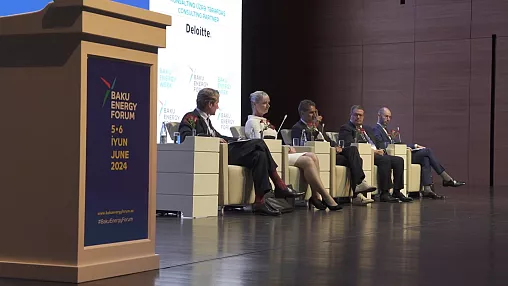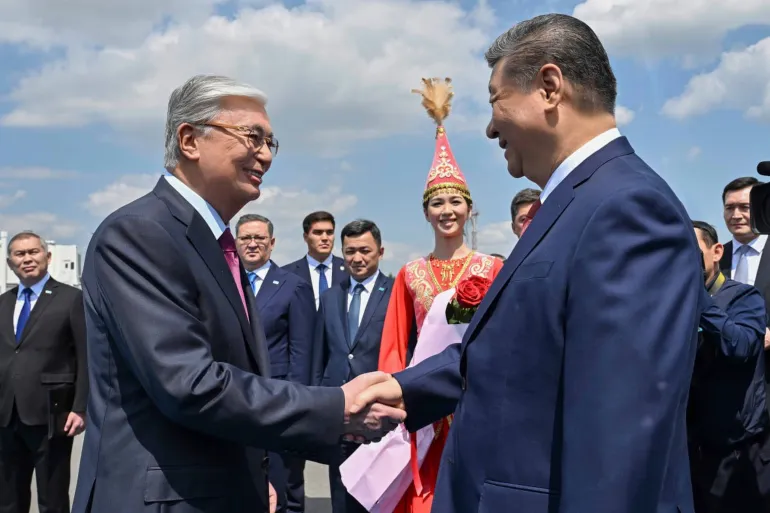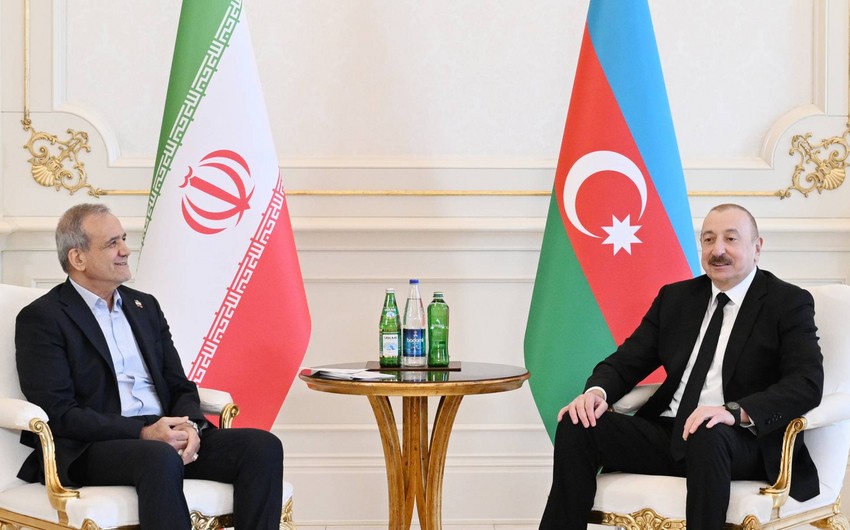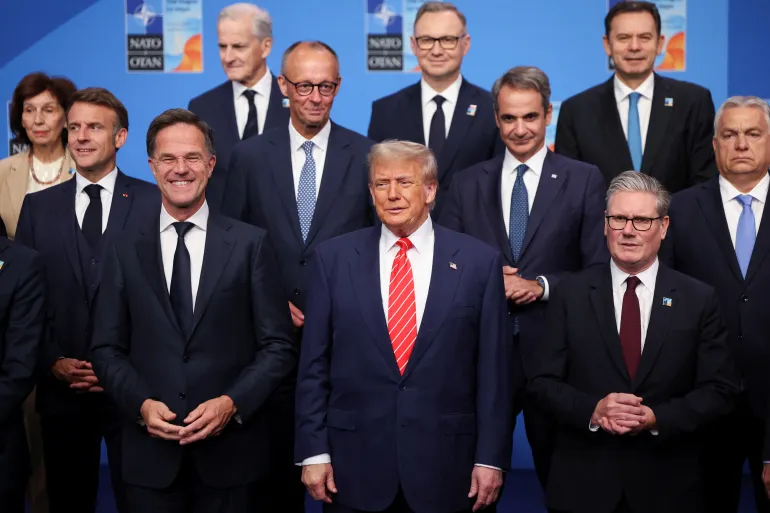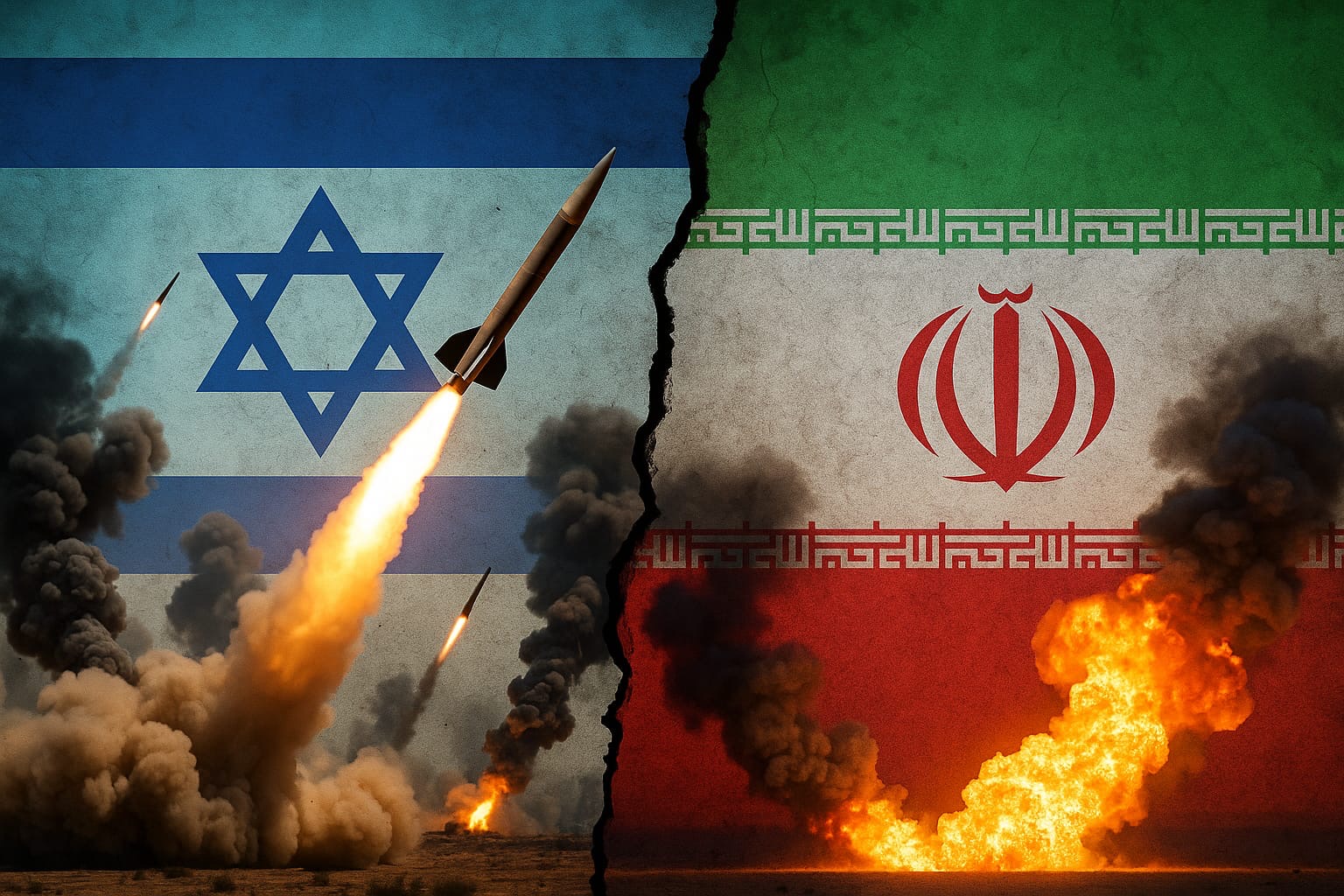Advancements in AI, economic growth in in developing countries and a switch to clean energy solutions were top of the agenda at the Baku Energy Forum at Baku Energy Week.
On June 21, Euronews TV channel aired a program on the 29th International Caspian Oil & Gas Exhibition - Caspian Oil & Gas and the 12th Caspian International Power and Green Energy Exhibition - Caspian Power held as part of the Baku Energy Week at the Baku Expo Center.
And Ednews represents the coverage:
Angela Wilkinson, Secretary General and CEO of the World Energy Council told Euronews: “What we really want to know is what does modern energy access look like for everybody? Then what sort of energy system do we need to deliver that?”
“So, what we would say is, world energy systems are no longer fit for purpose. We need to be progressive and pragmatic, but we're not going to make it unless we engage more people and diverse communities in understanding their roles and choices,” she added.
It was a sentiment echoed by Christophe McGlade, Head of Energy Supply Unit, at the International Energy Agency, who said: “Today, we need to recognize that the energy system isn't working for everybody. There's a huge number of people who don't have access to electricity. 750 million people don't have access to electricity, and 2.2 billion people don't have access to clean cooking. This is very damaging for their health.
Around 300 companies from 37 countries came together for one of the most important events on the global energy sector calendar.
Ilham Aliyev, President of Azerbaijan, told Euronews: “This really is a remarkable event, which actually demonstrates our green agenda and also demonstrates that Azerbaijan is attractive not only for those who invest in fossil fuels, but also for those who invest in renewables.” His comments came as Azerbaijan and the UAE announced at the opening of the event a joint plan to build three major solar and wind projects in Azerbaijan with a capacity of one gigawatt.
“It really demonstrates how a country which generated wealth from fossil fuel now is channelling this wealth into renewable energy and as a host country of COP29, this is also our obligation to be among the frontrunners on green transition,” Aliyev added.
The announcement was timely as momentum builds for COP29 in Baku, with Azerbaijan taking over the mantle from the UAE. Sultan Al Jaber, chairman of Masdar and COP28 President spoke of the importance of COP legacies and promises. “We set very clear and ambitious targets for tripling renewable energy capacity by 2030. We united the world around a practical pathway to keep 1.5 (degrees) within reach,” he said.
The forum ran alongside two exhibitions sponsored by Caspian Power and Caspian Oil and Gas that focused on major oil and gas projects in the region, as well as energy security. Other topics covered include development, production, transportation, as well as innovative technologies.
Geopolitics and the war in Ukraine led to a reduction in gas exports to Europe and an increase in natural gas prices. This, in turn, had a large impact on energy consumers, with countries looking for alternative sources and suppliers.
Tina Sersen, Slovenia’s Deputy Minister of Environment said: “For us, being a member of the European Union, ‘diversification’ gained a completely new meaning after the war broke out in Ukraine. So, Azerbaijan being one of the key suppliers that can enable us an alternative route or alternative gas source for our secure supplies, of course, is of key importance, and we have to build upon the relationship that was already established, and we have to broaden it and deepen it.”
Europe’s offshore wind and solar potential was highlighted as an option for solving the global climate issue alongside making sure that energy is secure and affordable for all.
Francesco La Camera, Director General of the International Renewable Energy Agency (IRENA) told Euronews: “We have to build our narrative on three main areas. First of all is the infrastructure. We need to build the infrastructure that is fitting with a new energy system more decentralised.
“Second, we need a legal environment and market designed for renewables and not for fossil fuels. And third, we have to increase our capabilities at governmental level as they scale up for the workers and all people engage with the decision.”

